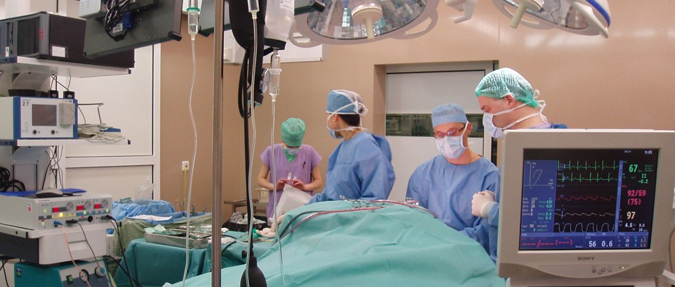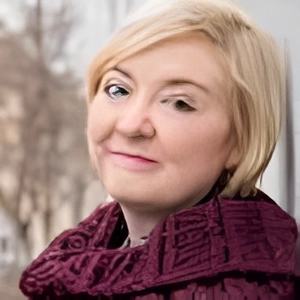The Czech Republic is firmly on the map as a must-see tourist destination. Now it’s aiming to attract a different kind of traveler: the health care commuter. Sipping on the spa water is not enough for this new generation of medical tourists: they want IVF, laser eye correction and even anti-obesity surgery – as well as boob jobs and lipo, of course.
Medical tourism is nothing new; for centuries, people have traveled in pursuit of better health. With its many spa towns, the Czech lands have long been a popular cure destination: back in the 1900s, Marianské Lázně welcomed the English king Edward VII who came to take the waters. In more recent times, the quest for physical perfection has pushed thousands to head abroad for cut-price boob jobs, labiaplasty – the so-called ‘designer vagina’– and liposuction.
PARTNER ARTICLE
However, it’s no longer just bargain basement cosmetic surgery that’s luring patients abroad. As public health care systems in the world’s wealthiest countries become increasingly overstretched, thousands are avoiding high medical costs at home by heading elsewhere, whether it’s for IVF, laser eye correction, or even hip replacements. Thanks in part to the rise of the internet, which has made researching treatment alternatives as simple as clicking a mouse, patients have become global consumers willing to jump on a plane to get more affordable treatment.
Medical tourism is a booming global industry and one that is set to expand. Some health insurers in the US such as Wellpoint have begun to include non-emergency surgery in foreign countries in their cover plans, a trend which is set to continue. According to a recent report by the The Economist Intelligence Unit, a new EU directive coming into force in 2013, which will reimburse patients for treatment received in other member countries, is likely to lead to a surge in Britons seeking surgery in Eastern European countries to sidestep lengthy NHS waiting lists.
Having seen the huge potential market, Czech Tourism is investing heavily in promoting the country as a medical tourism destination. This year alone, 2.8 million CZK has been dedicated to boosting the Czech Republic’s profile, according to Iveta Jakoubková, one of the tourist board’s marketing team, targeting countries as diverse as Russia, Germany, Kazakhstan, Switzerland, the Gulf States and the UK.
“The Czech Republic can offer excellent service and treatment for reasonable prices […], so we hope that the number of medical tourism patients will grow as well as our income from it,” explains Iveta.
Undergoing bariatric surgery in Prague rather than back home in the States saved American expat Charlie Waldbaum thousands of dollars. Here in the Czech Republic, the average price of biliopancreatic diversion is 150,000 CZK – around 7,000 USD – whereas in the US the procedure would cost 22,000 to 24,000 USD (450,000 to 500,000 CZK). Charlie, who was cared for at OB Klinika, was impressed with the standard of treatment he received: “I have had many sport-related surgeries in my life, and this was by far the biggest yet, and also the one with the least amount of pain and discomfort,” he told Expats.cz.
His positive experience inspired him to launch Medical Tourism s.r.o, a medical consultancy which will bring patients to the Czech Republic for treatment. Charlie’s company plans to focus primarily on surgery bariatric surgery, plastic surgery and IVF but also hopes to facilitate orthopaedic surgery, dental work and laser eye correction.
“Medical tourism is huge right now. I envisage that it could become the number two generator of income for the Czech Republic after mainstream tourism,” says Waldbaum.
The golden spires of Prague may pull in the punters, but doesn’t the idea of having treatment in the former Soviet bloc conjure up off-putting images of dreary wards and crumbling concrete hospitals? Apparently not. A joint report by British and Australian university researchers found the Czech Republic is aiming at – and successfully attracting – the more discerning end of the medical tourism market. While Spanish websites offering cosmetic surgery tend to show tacky images of obvious wealth such as yachts, researchers noted that Czech websites are more understated and focus more on the medical skill of their surgeons:
“Tourists to the Prague clinics are addressed as […] highly informed clients who are able to talk over the possible risks of their surgery with their local GP [family doctor]. They are assumed to be astute and demanding consumers,” the academics concluded.

Surprisingly, given the sexist nature of much of the advertising in the Czech media, the researchers found that it was the Spanish cosmetic surgery clinics websites which treated women “primarily as body parts” rather than those of their Czech counterparts. In contrast, the Czech clinics’ web pages included “very little emphasis on body parts or before or after pictures, foregrounding instead waiting and consultation rooms, theatres and equipment.”
While price is an important factor, health commuters want to know they’ll have the highest quality care, not just the lowest cost treatment. Given the Czech Republic’s major contributions in the field of medicine, for example, Nobel nominated scientist Antonin Holy’s research permitting the development of pioneering antiviral drugs crucial in the fight against HIV, the country’s plans to take advantage of the medical tourism boom seem destined for success:
“Czech healthcare boasts many achievements in both European as well as global fields,” says Deputy Minister for Health, Vítězslav Vavroušek. “We have internationally renowned experts in areas such as oncology, cardiology, infertility treatment as well as eye surgery. […] All of this ranks our country among one of the most advanced in the world in the field of medicine.”
Related articles












 Reading time: 4 minutes
Reading time: 4 minutes 




















